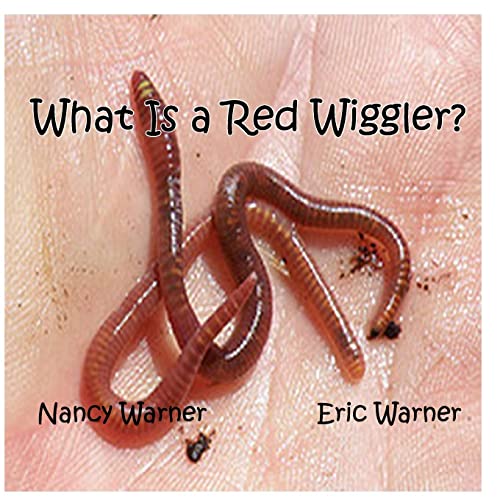The Incredible Globe of Red Wigglers: Increase Your Dirt Fertility Today
These tiny yet effective microorganisms transform organic waste right into valuable worm spreadings, dramatically enhancing dirt wellness and promoting sustainable techniques. As we explore the benefits of vermicomposting and the sensible actions to create an effective worm container, the possible effect of these worms on your gardening success ends up being progressively noticeable.
Recognizing Red Wigglers
Red wigglers, medically understood as Eisenia fetida, are a species of earthworm that play a vital duty in enhancing dirt fertility. These worms grow in organic-rich atmospheres, such as compost heap and rotting plant material, where they consume natural waste and excrete nutrient-dense castings. Their special makeup, including a segmented body and a clitellum, permits them to duplicate quickly and successfully process huge quantities of raw material.

The ecological importance of red wigglers prolongs beyond simple waste processing; they add to the soil food internet, promoting a varied community of bacteria that further improve dirt wellness. Understanding the biology and actions of red wigglers is vital for using their complete potential in lasting farming and horticulture techniques.
Advantages of Vermicomposting
(Lake Rhodhiss Bait)Taking advantage of the power of red wigglers with vermicomposting offers various benefits that substantially boost soil health and wellness and fertility. Among the key benefits is the production of nutrient-rich worm castings, which are an outstanding all-natural fertilizer. Red Wiggler Express. These castings contain vital nutrients like nitrogen, phosphorus, and potassium, promoting durable plant development and enhancing plant returns
In addition, vermicomposting enhances soil structure and aeration. The presence of worm spreadings enhances dirt structure, permitting better water retention and drainage. This balanced wetness degree is crucial for origin advancement and the total wellness of plants. Furthermore, red wigglers aid damage down natural matter, increasing disintegration and reusing nutrients back right into the soil.
Vermicomposting additionally cultivates microbial task, which is essential for a healthy soil ecosystem. Beneficial bacteria flourish in the existence of worm castings, aiding in the failure of organic products and enhancing nutrition accessibility to plants.
Lastly, vermicomposting works as a reliable waste monitoring remedy, reducing land fill waste by reusing kitchen scraps and other natural products. This not just adds to ecological sustainability however likewise advertises a circular economic climate within gardening and farming.
Exactly How to Establish a Worm Bin
Establishing a worm bin is a simple procedure that can considerably improve your composting initiatives. Begin by choosing an ideal container, which can vary from a readily available worm bin to a simple plastic or wooden box (Red Wiggler Express). Make certain the container has appropriate ventilation; small openings in the lid and sides will help with air flow
Following, produce a bedding layer to offer a comfy atmosphere for the red wigglers. This can be made from shredded newspaper, cardboard, or coconut coir, dampened to a damp, sponge-like uniformity. Load the bin to around one-third full with this bed linens material.
As soon as the bedding is prepared, it's time to present the worms. Red wigglers thrive in natural waste, so area them carefully onto the bed linens. Cover the worms with a light layer of additional bed linens to aid them accommodate.
Feeding Your Red Wigglers
Giving the best food for your red wigglers is essential for their health and the effectiveness of your composting system. Red wigglers flourish on a varied diet, mainly including organic products such as vegetables and fruit scraps, coffee grounds, and shredded paper. These materials not just give necessary nutrients however additionally contribute to the microbial activity in the worm container, which is critical for the worms' digestion.
It is essential to prevent particular foods, such as dairy products, oils, and meats, as these can draw in bugs and develop undesirable odors. In addition, citrus peels and overly spicy foods ought to be restricted as a result of their possible to damage the worms. A well balanced approach to feeding involves keeping an eye on the quantity of food presented to the container, ensuring that it is consumed within a sensible timespan to avoid excess waste build-up.
To advertise optimum digestion, it is valuable to cut or shred bigger food things prior to including them to the container. This method boosts the surface location for microbial activity, assisting in webpage quicker decay and improving the general efficiency of your composting system. On a regular basis observing the worms' feeding routines will certainly assist you adjust their diet as necessary.
Utilizing Worm Spreadings in Your Garden

(Red Wiggler Express)Integrating worm spreadings into your garden can be completed by mixing them into the dirt or using them as a top dressing. The slow-release nature of these spreadings makes sure that nutrients are offered to plants over an extended duration, decreasing the demand for synthetic plant foods. Additionally, worm castings have beneficial microbes that promote healthy dirt communities, boosting the general strength of your garden.
To make the most of the advantages, objective to use roughly one component worm castings to 3 parts soil in your planting beds. Normal applications can result in boosted crop returns and much healthier plants, making worm castings an invaluable source for both beginner and seasoned gardeners alike. By using this all-natural amendment, you can cultivate a successful garden while contributing to sustainable horticulture practices.
Final Thought
In verdict, red wigglers exemplify the important role of vermicomposting in improving dirt fertility. Their capacity to convert organic waste right into nutrient-rich spreadings dramatically enhances dirt framework and sustains microbial diversity. Establishing a vermicomposting system not only advertises sustainable horticulture techniques yet also contributes to environmental wellness. By leveraging the advantages of these remarkable microorganisms, gardeners can grow more productive and durable environments, eventually cultivating an extra sustainable approach to agriculture and horticulture.